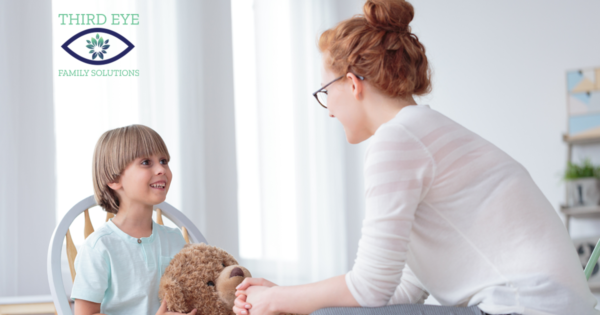Everywhere we look these days, we see conversation about race, racism, and the Black Lives Matter movement. It’s in social media, on the news, and if you’re driving around you may see protestors in the streets. You may have even attended protests with your children (something I highly recommend, when it’s safe to do so). Our children have many questions about what’s happening and why, and we want to provide you with some resources to help have those conversations.
First, if you are a parent who is already engaged in this kind of learning with you children, thank you! Parents of children of color, especially, tend to have conversations from a very young age both to teach their children and to keep them safe. As a parent of a mixed-race child, I learned early on that I needed to prepare my (now adult) child for the harsh realities of living in a world of systemic racism. I also had many conversations with my white children about how to stand up against racism and injustice when they see it. We are all still learning together, and we all have promised to never stop learning. The rest of this article is geared towards white parents raising white children.
Many parents wonder if their children are too young to talk about race. However, scientists have seen that children as young as three months old begin to notice race, and by age 4 or 5, racial prejudices begin to peak (click on the “Guide for Talking” for a graphic that explains these milestones). By not talking to our young children, we allow what they see around them to form their views of race, and often this includes prejudices and biases that become difficult to reverse.
We can help our very young children to grow into compassionate, anti-racist individuals by sharing books that have face of different colors; introducing them to people who don’t look like them and ensuring that their friendships go beyond their own race; and by pointing out injustice when we see it. That can look like “Did you notice that the children on the playground didn’t want to play with so-and-so? Why do you think that is?” Allow your child to name what they see, and explain why some people have prejudices due to color, ability, gender, and more.
As our children get older, we can teach them to speak out against racism. Raising White Kids by Jennifer Harvey is a great guide to teaching our children not only identify their own prejudices, but to learn how to take action when what they are witnessing is unjust. We’re also lucky to be living in a time when so many resources are being made available to us to help teach our children. Sesame Street broadcasted a “town hall” about racism that was a wonderful way for children and parents to explore racism and how it impacts us all. And a Google search for talking to children about racism yields 240 million results. My favorite advice is found here.
One of the most important things you can to is to do your own work. This can be difficult, especially if you feel that you aren’t racist! A good place to start is White Fragility by Robin DiAngelo. Facing our own internalized racism is critical to our ability to keep racism out of our families and teach our children to do better. Being open and honest as you face your own thoughts and limitations teaches our children that we can always grow and learn.
I’d like to end with a story that illustrates one of the best ways we can teach our children about racism: modelling anti-racist behavior. I was recently with a friend having a conversation, and several of our children (ages 7-18) were nearby and participating. At one point, this woman said something overtly racist (I won’t repeat it here as I don’t want to perpetuate the language used). She stopped and corrected herself, which was great, but I refused to let it slide. Instead, when she said “Oh I probably shouldn’t have said that!” I replied “You definitely shouldn’t have said that. There are many ways to make the point you wanted, none of which demean an entire culture of people, including…” and I gave several examples of language she could have used. None of the children said anything, but each of them heard me say “No. That’s not ok. Don’t do that.” And by hearing me call out the racism, they learn that they, too, can speak up when something is wrong.
We at Third Eye Family Solutions support Black Lives Matter and an end to police brutality. We are here to support you on your family journey as you navigate the complexity of talking to your children about racism and current events. If you have favorite resources you would like to share, please comment and let us know!


Recent Comments